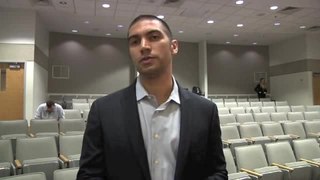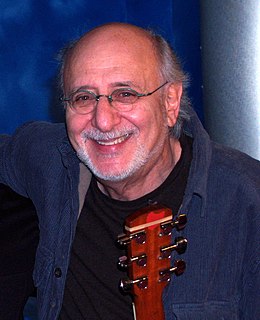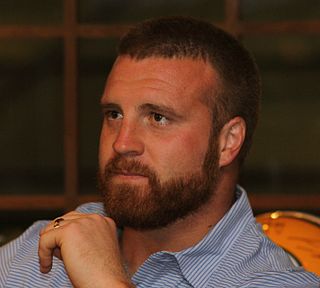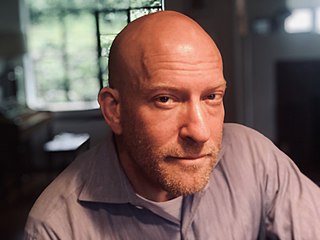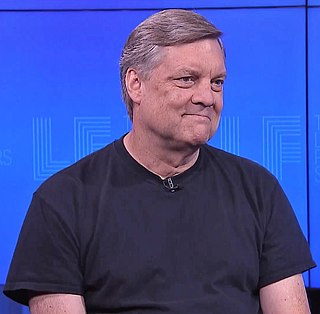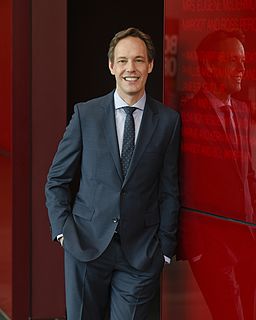Top 75 Inequity Quotes & Sayings - Page 2
Explore popular Inequity quotes.
Last updated on April 16, 2025.
Maybe I'm a bad feminist, but I am deeply committed to the issues important to the feminist movement. I have strong opinions about misogyny, institutional sexism that consistently places women at a disadvantage, the inequity in pay, the cult of beauty and thinness, the repeated attacks on reproductive freedom, violence against women, and on and on. I am as committed to fighting fiercely for equality as I am committed to disrupting the notion that there is an essential feminism.
One of the hardest things for me to do is be fully open in a poem. By that I mean, honest and not trying to amplify some mythological version of myself. I was a poor, geeky black kid in Indianapolis. There is nothing mythological about that. So to try to truly render the kind of economic and racial inequity I grew up in, I had to find a way to be more honest about what happened. And it wasn't fun to write, even though the poems aren't 100% autobiographical.
I can't help but react to the painful realities of the two-tiered society we live in, where the signs of poverty and inequity are everywhere. Almost twenty five percent of our children live at or below the poverty line. We expect the no-option life cycle of the poor to be interrupted by the weak social safety net and then wonder why building more jails doesn't solve the problems.
The general idea of the rich helping the poor, I think, is important. That your sense of justice says, why should rich kids - who barely get these diseases and almost never die of them - why should they get the vaccines, when poor kids, who actually do die from these diseases, don't get those things? It's an unbelievable inequity that there isn't that access.
It seems to me that large numbers of people are now paying attention to poverty and that large numbers now understand that blaming the poor and the insecure for being poor and insecure is as unseemly as is schoolyard bullying. In that realization lies hope for a reinvigorated discourse around poverty and inequity in modern-day America.
The American teacher stands on the front lines of poverty and inequity that our fellow Americans refuse to acknowledge, on the front lines of the real social condition of our nation–not the advertised one–and we stand together. When we look over our shoulders, there’s no one there backing us up. The rest of the army is off pretending there is no fight to be had here, no excuses to be made, no hardships to decry, no supply lines to worry about, that things in American society are just hunky-dory outside of the fact that the teachers just don’t care enough
...works of piety and charity... are necessary in this present life for as long as inequality prevails. Their workings here would not be required were it not for the superabundant numbers of the poor, the needy, and the sick... As long as this inequity rages in the world, these good works will be necessary and valuable to anyone practicing them and they shall yield the reward of an everlasting inheritance to the man of good heart and concerned will.
I'm more attuned than ever to the proliferation of groups that are working for justice and equality. They're all over the country. We want the people who watch "A House Divided" and other stories in our America Divided series to realize that there are structures that reinforce inequality and inequity, and that our job as good people is to work together to dismantle those structures. We're hoping that viewers will see what they have in common with other Americans, have empathy and become more united.
Legislators in Kansas, Arizona and 23 other states who are properly determined to protect religious freedom can begin by asking themselves: Does any religious conviction justify denying lesbians and gays a basic legal promise of non-discrimination in hiring, public accommodations, and housing? Surely the answer to this question is no. Correcting that inequity would begin the process of recognizing that both sides - gay couples and religious objectors - have rights and that reasonable accommodation is possible only when both sides have something to gain.
Michael Moore's first big film "Roger & Me" has an extremely powerful scene in which a family in Flint, Michigan is evicted right around Christmas. That was an inspiration to me to document the stories of people living on the edge as they're happening. My aim in "A House Divided" was to explore the urgent challenges of housing inequity in New York through the eyes of Norman Lear.
Down there - he said - are people who will follow any dragon, worship any god, ignore any inequity. All out of a kind of humdrum, everyday badness. Not the really high, creative loathsomeness of the great sinners, but a sort of mass-produced darkness of the soul. Sin, you might say, without a trace of originality. They accept evil not because they say yes, but because they don't say no.
Perhaps, indeed, there are no truly universal ethics: or to put it more precisely, the ways in which ethical principles are interpreted will inevitably differ across cultures and eras. Yet, these differences arise chiefly at the margins. All known societies embrace the virtues of truthfulness, integrity, loyalty, fairness; none explicitly endorse falsehood, dishonesty, disloyalty, gross inequity. (Five Minds for the Future, p136)
Taking a look back, one big reqret is, I left Harvard with no real awareness of the awful inequities in the world. The appalling disparities of health and wealth and opportunity that condemned millions of people to the lives of despair. I learned a lot here at Harvard about new ideas and economics, and politics. I got great exposure to the advances being made in the sciences. But humanities greatest advances are not in its discoveries, but in how those discoveries are applied to reduce inequity.
I look for stories that tell transformative, emotional journeys, have big emotional worlds, feel very relevant and true to the times we're living in - even though they might be of a different time - have a sense of real intimacy with larger forces at work, where there's some kind of social injustice and inequity happening that needs to be conquered or addressed. I find historically that's the formula for a lot of successful operas.

